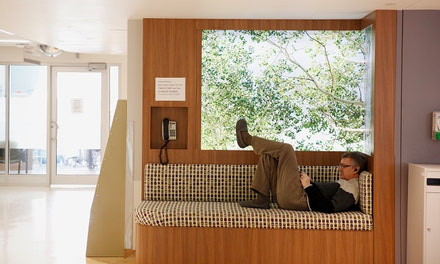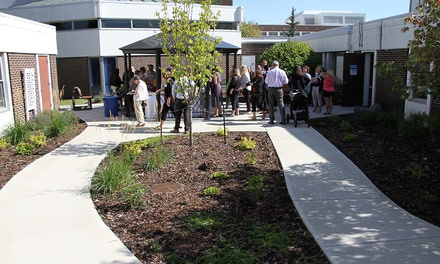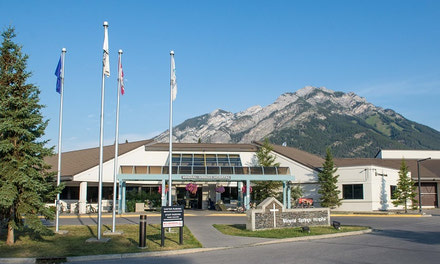New NICU Keeps Families and Babies Together
The new Neonatal Intensive Care Unit (NICU) at the Misericordia Community Hospital, which opened in January 2017, is innovative, state-of-the-art, and creates a feeling of normalcy for babies and families in a stressful situation.
“This new space allows for the family-integrated care model,” says Gail Cameron, Senior Director of Operations, Women’s & Child Health, Grey Nuns & Misericordia Community Hospitals. “We’re offering great care for the baby, and a sense of home, which is crucial in those early days.”
The commitment from Covenant Foundation for the new unit totaled over $4.2 million, and helps to provide compassionate care for every one of the NICU’s 1,200 patients per year.
The new NICU is comprised of 23 private rooms (including two that can accommodate twins or triplets), as opposed to the previous 18 spaces in two pods. The opportunity for a family to enjoy privacy with their baby creates much more than comfort.
“The babies we care for here generally have premature brains, so they can’t process stress properly. In an open unit, babies startle so much, which makes them burn more calories,” says Cameron. “That’s a problem when we’re talking about preemies: they need to catch up, but they’re growing slowly because of distractions. Now they get the sleep they need.”
Each room has its own lighting system, enhanced sound protection and temperature control. Babies and moms can bond and heal together, and fall into their own natural schedule.
“If a mom has delivered 10 weeks early, they’ll likely be with us for six weeks,” says Cameron. “And now the family can stay together. Each room has a private fridge and a couch that converts to a bed. There’s space for mom and dad, the toddler, grandma.”
One of the new unit’s bigger expenses was the new central monitoring system that keeps track of the babies’ fragile health. When there is a noteworthy change in vitals, the nurse’s phone receives an alert, as does the charge nurse, and the hallway phone. This system allows all necessary medical staff to be simultaneously alerted to critical changes and respond faster in times of crisis.
Cameron notes the new space, which has been at 100 per cent occupancy all year, allows another integral person to be involved in monitoring the baby’s progress.
“Parents have had ample time to bond, they’re with their baby all the time, so we appreciate their reports,” she says. “The parents have come to understand their baby, and we’re here to offer support. This is how it should be.”





